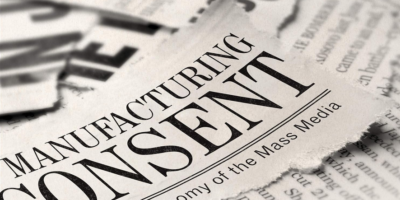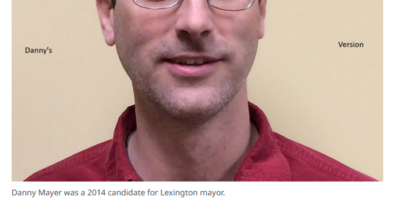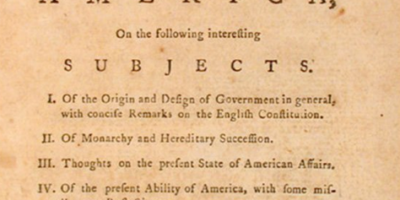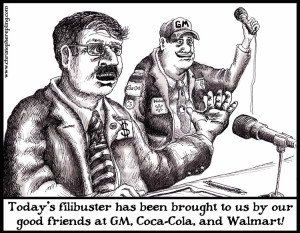The leek: a satirical take
By Horace Heller Hedley, IV
In a bold initiative for solving stubborn Federal budget problems, the U.S. House of Representatives will, for the first time in its history, accept official corporate sponsorship. As anticipated, the move has created a scramble among America’s largest corporations which are now vying for exclusive rights to sponsor the House—an undreamed of branding and public relations coup for the winner.
The news sent shock waves through the Fortune 500, as at least a dozen of America’s top corporations jockeyed for position in the upcoming public auction, dubbed “the mother of all bidding wars.”
“When I heard the news, I passed dead out,” said Ethan Richenmeyer, Director of Creative Civic Influence for General Electric. “I mean, you just can’t buy visibility like that. It’s like a Super Bowl commercial, 24-7. This auction is going to make the bidding on the F-35’s jet engine contract look like a game of Go Fish.”
The new initiative is credited to Rep. Paul Ryan (R-Wisconsin), the GOP’s most prominent budget hawk. The inspiration came from an unlikely source—college bowl games. “They have an Allstate Sugar Bowl, a Capital One Bowl, and an AT&T Cotton Bowl. Why shouldn’t government show that level of creativity? This is exactly the kind of pragmatic, public-private partnership that we want people to associate with the Republican brand. With luck, we could raise enough revenue to restore the Bush-era tax cuts on the job-creators at the top of our income distribution.”
Indeed, experts believe that the sponsorship could bring an enormous windfall for the Federal treasury, with estimates of annual revenue from the House of Representatives sponsorship running as high as $500 million. The corporations vying for the sponsorship—most with annual incomes topping $100 billion—can afford such an exorbitant advertising expenditure to attain the very pinnacle of corporate prestige.
Advertising experts agree that the sponsorship of the House could be worth the enormous sticker price. The successful bidder will command considerable creative freedom over the institution’s branding. “They will insist on changing the name, for sure,” said Wendy O’Shea, a corporate promotions consultant. “‘House of Representatives’ just lays right in the ground. Of course, they will want to display their corporate logo prominently outside the building. Probably the American flag can stay, but they might demand a smaller one, so the logo isn’t upstaged. They’ll definitely be remodeling the interior. If Apple wins, for example, it will be all black, with sleek, clean lines, in keeping with their look.”
Details of the bidding are closely held secrets, though rumors are circulating. One Madison Avenue insider suggested that by this time next year, our elected representatives might be meeting in The Citigroup Citizen Center, the Lockheed Martin Patrio-plex, or the Chik Fil-O-Buster Pavilion.
If the sponsorship of the House of Representatives succeeds, some Federal officials are reportedly considering expanding the initiative. “This could be just the beginning,” said Rachael Hestard, a staff member of House Majority Leader Eric Cantor. “If this works out, we could start selling sponsorships of Congressional committees. There are dozens of those. At even $50 million a pop, that adds up to real money. And Federal agency sponsorship could command even more.”
But some citizens’ advocacy groups worry that such outsized deals may give the corporate giants undue influence over government, or at least create the appearance of impropriety. Consumer advocate Donald Rochester’s views were representative: “You’ve heard the rumors. The FDA will become the Eli Lilly Pharmaceutical Fast-Track? Defense appropriations will go before the Halliburton Armed Services Roundtable? I know we’re broke, but do we have to stoop so low to squeeze money out of mega corporations? Whatever happened to just taxing the bastards?”
But other advocates of effective government defended the new initiative. “Look, they’re going to spend the big bucks to influence the Feds one way or the other, right? So either the K Street lobbyists get the money, or we taxpayers get it back. So there’s a Nike swoop in front of the capital building? For a 30 percent maximum tax rate, I could live with that.”





Leave a Reply